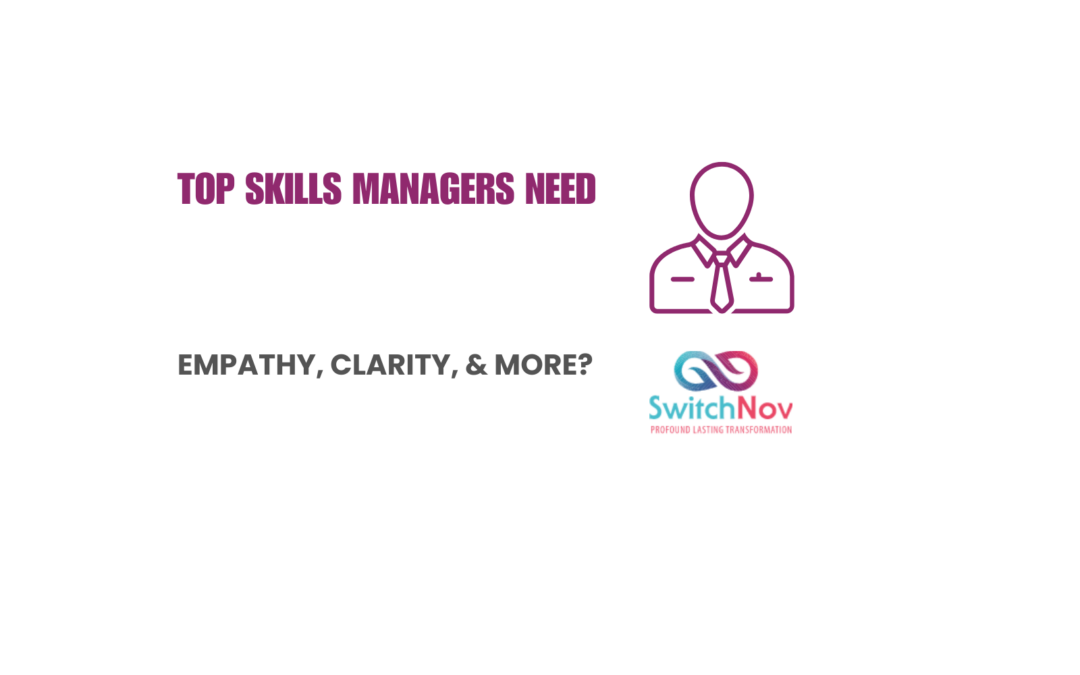Effective communication remains the cornerstone of successful management.
Whether you’re leading a team in Mumbai, New York, or London, the ability to connect, inspire, and guide people is non-negotiable. For managers in India—where diverse cultures, languages, and a booming tech-driven economy shape the business landscape—and across the globe, mastering communication skills is more critical than ever.
Rapid digital transformation, hybrid work models, and rising employee expectations demand that managers adapt and excel in how they convey ideas, resolve conflicts, and build trust.
Drawing from global trends and insights tailored to India’s dynamic workforce, here are the top 10 communication skills every manager needs in 2025.
1. Active Listening
Active listening goes beyond hearing words—it’s about understanding intent and emotions. In India, where teams often span multiple regions and dialects, managers must tune into verbal and non-verbal cues.
Globally, with remote work still prevalent, this skill ensures employees feel valued, whether in a Bangalore office or a virtual meeting. A 2023 study by the Harvard Business Review found that leaders who practice active listening improve team morale by 30% .
To develop this, practice paraphrasing what employees say and asking clarifying questions.
2. Clarity in Messaging
Ambiguity kills productivity. Managers must deliver clear, concise instructions, especially in India’s multilingual workplaces where English often bridges Hindi, Tamil, or Bengali speakers. Globally, clarity prevents missteps in fast-paced industries like tech or finance.
A Gartner report predicts that by 2025, 60% of workplace errors will stem from poor communication. Hone this skill by simplifying complex ideas—think of explaining a project to a new hire—and avoiding jargon unless necessary.
3. Empathy
Empathy builds trust, a universal need but particularly vital in India, where hierarchical structures can distance leaders from teams.
With mental health awareness rising—India’s National Mental Health Survey (2016) noted 14% of the population faces stress-related issues—empathetic managers can address burnout.
Globally, empathetic leadership boosts retention, as a 2024 LinkedIn study showed 57% of employees stay longer with compassionate bosses.
Practice empathy by acknowledging team struggles and offering support, not just solutions.
4. Persuasion and Influence
Managers must inspire action, whether convincing a Delhi sales team to hit targets or a global board to approve a budget. In India, where relationship-based business thrives, persuasion often hinges on rapport over data alone.
A McKinsey study highlights that persuasive leaders drive 20% higher performance . Develop this by framing messages around shared goals—say, “This benefits our team’s growth”—rather than top-down commands.
5. Cross-Cultural Communication
India’s workforce blends urban tech talent with rural recruits, requiring managers to navigate cultural nuances like indirect feedback or respect for seniority. Globally, multinational teams demand similar adaptability—think a manager in Pune coordinating with colleagues in Berlin.
Research from the Society for Human Resource Management (SHRM) shows 70% of international projects fail due to cultural misunderstandings. Master this by learning basic phrases in regional languages or studying cultural norms of your team’s locations.
6. Digital Communication Proficiency
With India’s digital economy projected to hit $1 trillion by 2030 , and hybrid work dominating worldwide, managers must excel on platforms like Slack, Microsoft Teams, or WhatsApp. Missteps in tone or timing can derail projects—imagine a misinterpreted email sparking confusion in a Hyderabad startup.
A 2024 Forbes article notes that 45% of managers struggle with digital etiquette . Sharpen this skill by keeping messages brief, using bullet points, and confirming receipt on critical updates.
7. Feedback Delivery
Constructive feedback fuels growth, but delivering it poorly can demotivate. In India, where direct criticism may feel disrespectful, managers must balance honesty with tact. Globally, this skill prevents disengagement—Gallup reports 69% of employees crave better feedback.
Use the “sandwich method”—positive comment, critique, positive close—and tailor it to the individual. For example, “Your report was thorough, but adding visuals could enhance it—your effort really shines here.”
8. Conflict Resolution
Disputes are inevitable, whether over deadlines in a Chennai office or priorities in a global team. India’s collectivist culture often avoids confrontation, so managers need finesse to mediate without escalating tensions. A 2023 CIPD study found unresolved conflict costs firms 20 hours of productivity monthly .
Practice this by staying neutral, listening to all sides, and proposing win-win solutions—like adjusting workloads to ease team friction.
9. Public Speaking
From addressing a Kolkata boardroom to presenting at a virtual global summit, managers must command attention. In India, where English fluency varies, pacing and simplicity matter. A 2024 Toastmasters report notes 73% of leaders credit public speaking for career advancement.
Build confidence by practicing short pitches—start with a 30-second team update—and recording yourself to refine tone and clarity.
10. Adaptability in Communication Style
No two employees are alike. A Gen Z coder in Bengaluru may prefer casual Slack chats, while a veteran in London expects formal emails. India’s diverse workforce—spanning age, gender, and education—demands flexibility, as does managing across time zones globally. A 2024 Deloitte survey found adaptable leaders improve team efficiency by 25%.
Test this by adjusting your style per person: brief and direct for busy staff, detailed for analytical types.
Why These Skills Matter in 2025?
The workplace of 2025 is a blend of AI-driven tools, human creativity, and heightened employee expectations. In India, the rise of startups and IT hubs like Hyderabad and Pune amplifies the need for managers who can unify diverse talent. Globally, as McKinsey predicts, 375 million workers will need reskilling by 2030, and communication will bridge that transition.
Managers who master these skills won’t just lead—they’ll thrive.
For managers in India and worldwide, 2025 is a proving ground.
Communication isn’t just a soft skill—it’s a strategic asset. Whether you’re navigating Mumbai’s bustling corporate scene or leading a distributed team across continents, these 10 skills will set you apart. Start small: pick one, practice daily, and watch your influence grow. In a world where technology races ahead, the human connection you forge through communication will define your success.
GET IN TOUCH

